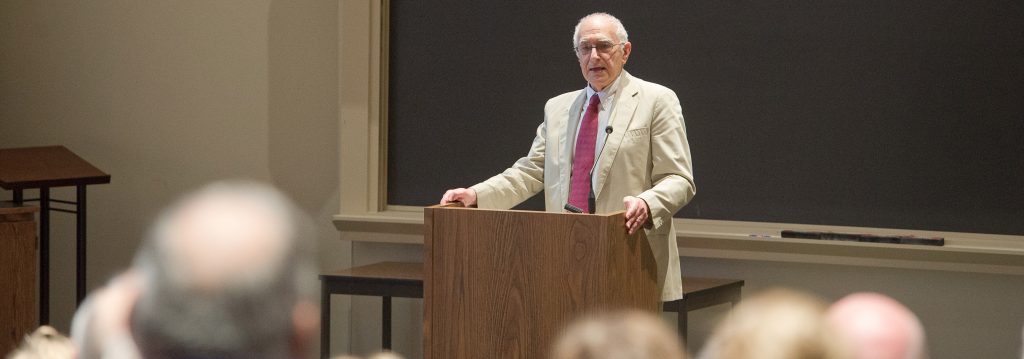 At a recent Marshall Center lecture, Michael Zuckert opined that late twentieth century political theory scholars began to neglect the problem of statesmanship and focused too heavily on leadership. What’s the difference? In his view, the moral qualities of leadership reside within the statesman, while leadership is a broader term concerned with effectiveness, whether good or bad.
At a recent Marshall Center lecture, Michael Zuckert opined that late twentieth century political theory scholars began to neglect the problem of statesmanship and focused too heavily on leadership. What’s the difference? In his view, the moral qualities of leadership reside within the statesman, while leadership is a broader term concerned with effectiveness, whether good or bad.
Why does the distinction matter? We all know leaders who are good at getting things done but who lack inspirational qualities. More than this, many of us have experienced leaders who are tremendously effective but who make morally questionable choices for the organization or group. At its most extreme, this leader plunges the nation or group into moral chaos — unnecessary war, deprivation, starvation, or want — yet is nonetheless effective.
On the other hand, we may think of a morally good leader who is inept at running anything. Here, too, the group may fall into starvation or want. In the former cases, the trains are on time but no one can afford to use them; in the latter, the trains do not run at all. The outcome of each is that the leader’s ineptitude harms the individuals who make up the collective.
Zuckert interrogated this leader/statesman taxonomy as it applied to Abraham Lincoln, a leader we frequently associate with statesmanship.
Using Zuckert’s taxonomy, leaders who are morally responsible for the well-being of the group need two sets of skills. First, they must know what is morally good (or at least what is not morally harmful) for the group. Zuckert argues that Lincoln recognized that indifference (on the part of leaders) to slavery, the alternative proposed by Senator Stephen Douglas, was morally unacceptable. Thus, Lincoln used all his rhetorical skills to offer arguments to the contrary.
Second, leaders must be effective. According to Zuckert, having made the case against slavery, Lincoln’s key task was to make what was morally good into the practical or effective.
How does this distinction help us think about good leadership today? While the struggles of an all-encompassing civil war are, thankfully, not at hand, Zuckert’s taxonomy nonetheless provides a good measure of leadership today. We can assess the quality of our leaders, whether national or local, along two, interrelated dimensions: effectiveness and ethics. Of course, starvation and war aside, it is not always straightforward to agree on how to assess either dimension.
